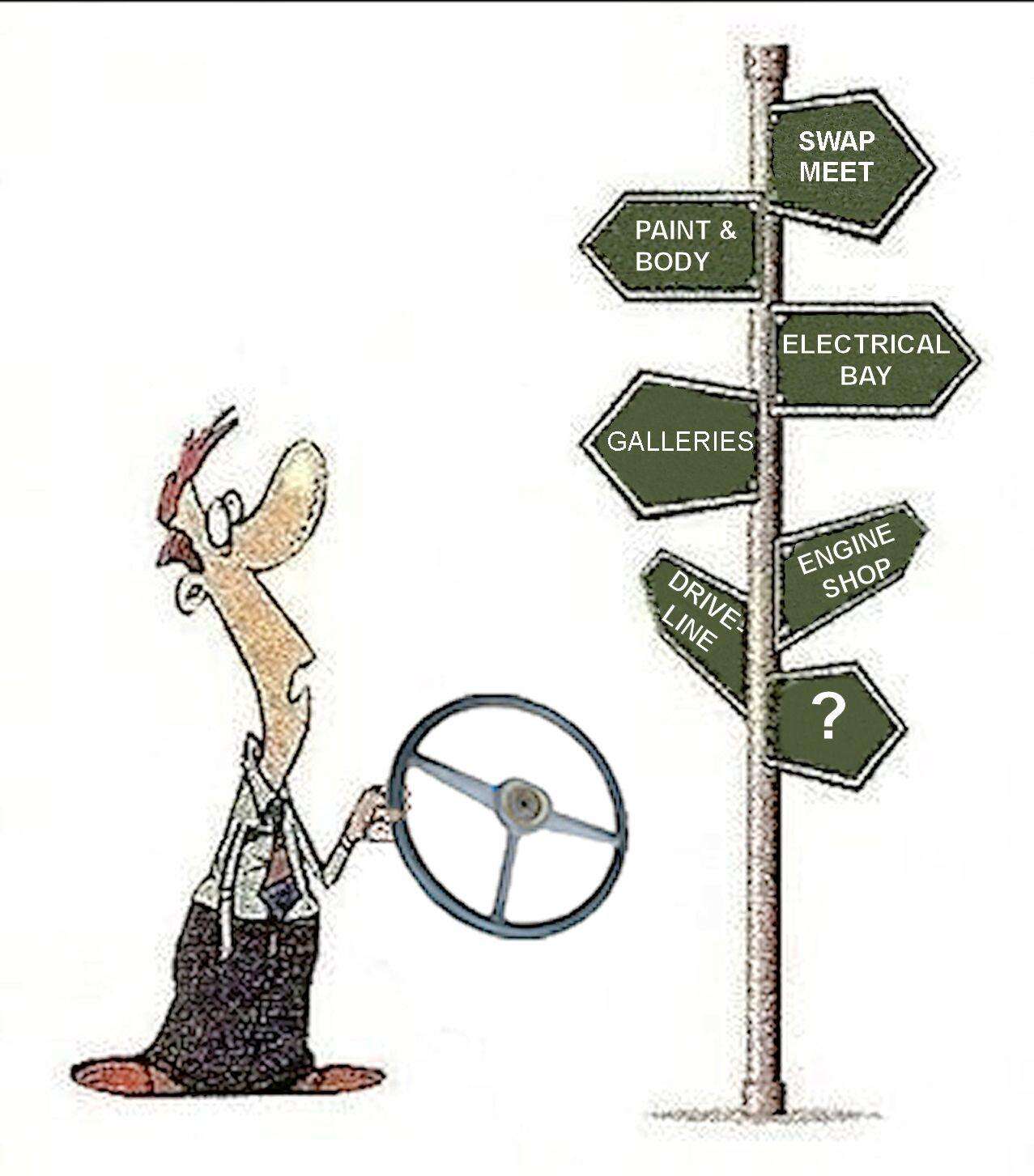BUSY BOLTERS Are you one?  The Shop Area The Shop Area
continues to pull in the most views on the Stovebolt. In August alone there were over 22,000 views in those 13 forums.
| | Click on image for the lowdown. 
====
| | |
8 members (Guitplayer, Possum, cmayna, Joe W, UtahYork, Greg_H, FAST55, rfs56trk),
522
guests, and
1
robot. | | Key: Admin,
Global Mod,
Mod | | | Forums66 Topics126,776 Posts1,039,271 Members48,100 | | Most Online2,175
Jul 21st, 2025 | | | | Joined: Nov 2013 Posts: 105 'Bolter | | 'Bolter Joined: Nov 2013 Posts: 105 | Good to know on the plug color. They are not glassy or blistered. They are just white, so my burnt valve fears are somewhat cured.
I will go over the timing for sure, but I want to be sure that I understand which method fits your analogy - setting advance with the best vacuum is a good method and checking for pinging then backing off is the chalk & axe method, correct? I read about disconnecting the vacuum advance and plugging that port, then connecting the vacuum gage to the manifold port (the one used for wipers), holding the revs at 2000 and then dialing in the best vacuum.
Thanks,
Mark | | | | | Joined: Feb 2004 Posts: 28,674 Kettle Custodian (pot stirrer) | | Kettle Custodian (pot stirrer) Joined: Feb 2004 Posts: 28,674 | Monitoring vacuum at cruise speed is far better that doing it at idle, but it's still a poor substitute for using a delay flash timing light and getting actual measurements of initial, centrifugal, and vacuum advance. I've been using strobe flash timing lights for over 50 years, so it's not like that's some new, untested kind of technology. Shade tree methods are for people who don't know how to do it right, or maybe they just don't care.
On numerous dyno tests I've documented, one degree too much timing advance robs as much power as being 5 degrees retarded from the optimum advance setting. That's not guesswork; it's a fact proved by measuring torque and RPM, and calculating horsepower from those measurements, with corrections for temperature and humidity. Making a wild guess on timing has no place in that kind of calculation.
Jerry
"It is better to be silent and be thought a fool than to speak and eliminate all doubt!" - Abraham Lincoln
Cringe and wail in fear, Eloi- - - - -we Morlocks are on the hunt!
There is nothing noble in being superior to your fellow man; true nobility is being superior to your former self. - Ernest Hemingway
Love your enemies and drive 'em nuts!
| | | | | Joined: Nov 2013 Posts: 105 'Bolter | | 'Bolter Joined: Nov 2013 Posts: 105 | Finally had an opportunity to work on and drive the truck today, so I went out and bought a timing light with an advance dial and then marked TDC on the flywheel with white paint (the line between the UC mark). Drove around for about 30 minutes, so the engine was good and hot, disconnected the vacuum advance, plugged the vacuum advance port, hooked up the tach, vacuum gauge (to the wiper port), and put the timing light to #1 wire.
So with the timing light, the blind man (me) now sees᠁ Timing at idle was 15 degrees! So the engine probably was fighting itself and may explain the bumping it was doing. I checked the timing at 2,000rpm and it showed 30 degrees advanced. When I flipped to the #6 wire, I got the same readings for both idle and 2,000 RMP. So much for timing by anything other than a timing light. HRL, your measuring and cutting analogy was well put. I'm at least now measuring with a tape measure, marking with a slightly dull #2 pencil and cutting with a Bowie knife, just need more practice to graduate to micrometer and scalpel.
I adjusted the points and got a dwell reading of 41.3, and dialed in 9 degrees of advance at idle. At 2,000 RPM it was about 25 or 28 degrees, but it was hard to tell since I was doing it without a helper (needed three arms and another set of eyes). Took it for a spin and it ran great with no chuffing sounds. I’m guessing with the overly advanced setting along with a few tight valves caused intake and exhaust to rush past the partially open valves and caused that chuffing sound? The engine was not bumping around and the vacuum was solid. Valve lash after the 30 minute drive was good, with no tight valves at .006 intake and .018 exhaust.
Thanks again for the help.
mark | | | | | Joined: Feb 2004 Posts: 28,674 Kettle Custodian (pot stirrer) | | Kettle Custodian (pot stirrer) Joined: Feb 2004 Posts: 28,674 | "I love it when a plan comes together!" You're not the first bolter I've managed to convert to precision timing methods- - - - -hope you're not the last! Doing a SWAG with a vacuum gauge might be OK when nothing else is available, but the guy who invented that delay knob on a strobe light has been my hero for a long time!
Jerry
"It is better to be silent and be thought a fool than to speak and eliminate all doubt!" - Abraham Lincoln
Cringe and wail in fear, Eloi- - - - -we Morlocks are on the hunt!
There is nothing noble in being superior to your fellow man; true nobility is being superior to your former self. - Ernest Hemingway
Love your enemies and drive 'em nuts!
| | |
|
|